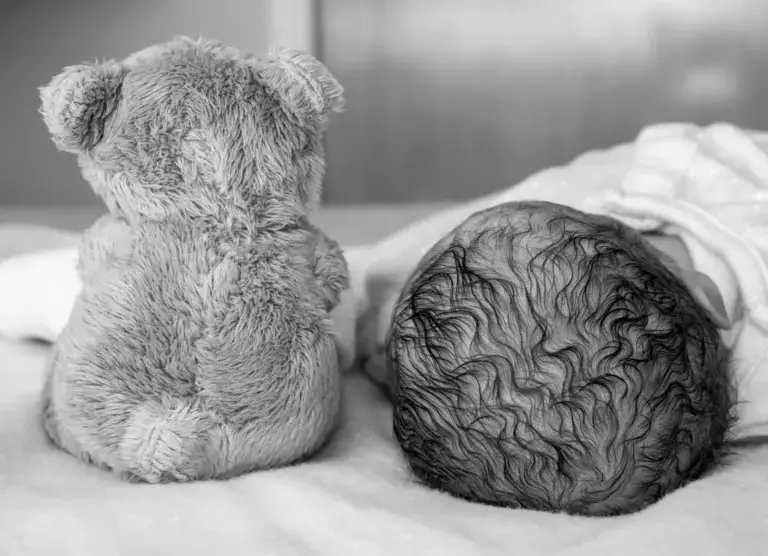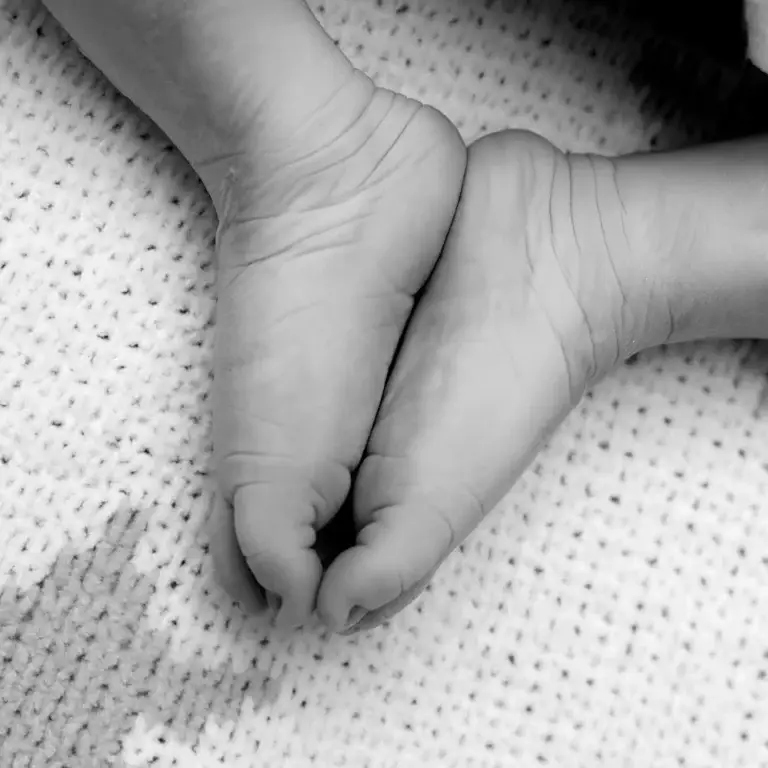For Emily and her partner, David, the excitement of her pregnancy was mixed with cautious optimism. After years of trying to conceive, Oliver was their miracle baby. The couple spent months imagining their future as a family of three, preparing the nursery, and counting down the days until they would meet their son. But at 37 weeks, their world was turned upside down in an instant.
“I hadn’t felt him move much that day,” Emily said, her voice soft but steady. “At first, I thought, ‘Maybe he’s just having a quiet day.’ But something didn’t feel right. I couldn’t shake the worry.”
Emily’s intuition brought her to the hospital, where her fears were realised. The quiet buzz of machines and the rhythmic beeping of monitors filled the room as the midwife moved the ultrasound probe across her belly. David stood beside her, gripping her hand tightly.
“I knew something was wrong,” Emily continued, her voice breaking. “The midwife kept moving the probe back and forth, searching for something. The look on her face—she didn’t even have to say anything. I just knew.”
When the doctor gently confirmed that Oliver’s heart had stopped, Emily felt the air leave her lungs. “I couldn’t believe it,” she said. “I kept saying, ‘This can’t be happening. He was healthy, or so we thought. How could this happen so suddenly?’”
The following day, Emily was induced to deliver Oliver. “It was the hardest thing I’ve ever done,” she said. “My body was still protecting him, but my heart knew it was all for goodbye.”
Labour was long and exhausting, but David stayed by her side the entire time. “He held my hand, whispered to me that I was strong,” Emily said. “I think he was saying it to himself as much as to me.”
When Oliver was born, the room fell silent. The absence of a cry was deafening. A nurse gently wrapped him in a soft blanket and placed him in Emily’s arms.
“He was so beautiful,” she said, tears streaming down her face. “His tiny hands, his perfect nose, his soft cheeks. He looked like he was just sleeping.” David stood beside her, silent but overwhelmed with love and grief. “I couldn’t stop looking at him,” David said. “I wanted to memorise every detail, every little feature. I knew this was all we’d have.”
The hospital staff encouraged Emily and David to spend as much time as they needed with Oliver. They dressed him in a little outfit they had picked out months before and wrapped him in a blanket they had carefully chosen for the hospital.
For hours, Emily and David held their son, kissed his forehead, and spoke to him softly. “I told him how much we loved him,” Emily said. “I told him about all the plans we’d made for him, about the life we had dreamed of for him.”
A rememberance photographer captured precious photos of Oliver with his parents. “At first, I wasn’t sure if I’d want the photos,” Emily admitted. “It felt so painful at the time, but now, they’re everything to me. They’re how I remember his tiny face, his delicate hands. They’re proof that he was here, that he was real.”
David helped take Oliver’s handprints and footprints, pressing them carefully onto paper. “It was such a small thing,” he said. “But it felt monumental. It was something tangible, something to remind us that he existed.”
Leaving the hospital without Oliver was a pain Emily and David couldn’t put into words. “Walking out of those doors, knowing we’d never see him again… it was unbearable,” Emily said.
The silence at home was suffocating. The nursery they had lovingly prepared now felt like a shrine to the life they had imagined. Emily stood in the room, her hands gripping the edge of the crib, as tears streamed down her face. “I kept thinking, ‘This is supposed to be his space. This was supposed to be filled with his laughter.’”
David avoided the nursery altogether at first. Instead, he found himself drawn to the memory box the hospital staff had given them. Inside were Oliver’s photos, his footprints, and the blanket he had been wrapped in. “I’d sit with it and just cry,” David said. “It felt like all we had left of him was in that box.”
In the weeks and months after Oliver’s birth, Emily struggled with the weight of her grief and the silence that surrounded it. “People don’t know what to say,” she explained. “Some avoided the topic entirely, while others said things like, ‘At least you can try again.’ It felt like they wanted me to move on, but I wasn’t ready.”
Emily found herself retreating from social situations, feeling isolated in her sorrow. “It’s a very lonely place,” she said. “You’re expected to grieve quietly, to not make others uncomfortable. But all I wanted to do was talk about him, to say his name.”
As time passed, Emily and David began to find ways to honour Oliver’s memory. Emily created a memory box filled with his ultrasound pictures, his hospital bracelet, and letters she wrote to him. “It became a way to keep him close,” she said. “To give him a place in our lives.”
David found comfort in Oliver’s photographs, often sitting with them in the evenings. “I’d talk to him,” he said. “I’d tell him about my day, about how much we missed him. It was my way of being his dad, even though he wasn’t here.”
Emily also began speaking at events and supporting charities that work to improve care for families experiencing stillbirth. “No one should feel like they have to grieve in silence,” she said. “We need to talk about this, to break the stigma surrounding baby loss.”
For Emily and David, Oliver will always be their firstborn. They wear necklaces engraved with his name and light a candle for him every year on his birthday.
“Oliver taught us what unconditional love truly means,” Emily said, her voice breaking. “He may not be here, but he’ll always be a part of us.”
David nodded. “He’s part of everything we do,” he said. “Every decision we make, every step we take—he’s with us.”
Through their grief, Emily and David have found a way to turn their pain into purpose. By sharing Oliver’s story, they ensure his memory lives on and remind others of the importance of saying their baby’s name, honouring their life, however brief it may have been.
“His life may have been short,” Emily said, “but his impact will last forever.”

